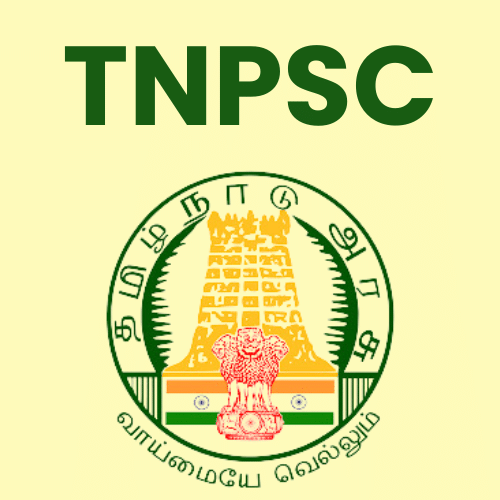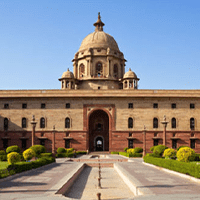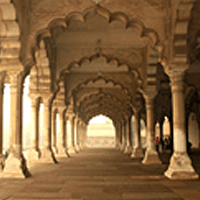Best Study Material for TNPSC (Tamil Nadu) Exam
TNPSC (Tamil Nadu) Exam > TNPSC (Tamil Nadu) Notes > Tamil Nadu State PSC (TNPSC): Preparation > Fairs and Festivals of Tamil Nadu
Fairs and Festivals of Tamil Nadu | Tamil Nadu State PSC (TNPSC): Preparation - TNPSC (Tamil Nadu) PDF Download
Introduction
Tamil Nadu, a state known for its rich cultural heritage, celebrates a variety of festivals that reflect its vibrant traditions and diverse communities. These festivals are not just about merrymaking but also about cultural preservation and community bonding.
Fair and Festival of Tamil Nadu
Pongal- Overview: Pongal is a significant harvest festival observed in Tamil Nadu. It spans four days, from January 13th to 16th.
- Purpose: This festival is dedicated to honoring the Sun God for his role in agriculture.
- Traditions:
- Preparation: Women create intricate Kolams (patterns) at their home entrances using rice and colored powders a month before the festival. This period is known as Margali, during which houses are cleaned and painted.
- Celebrations: The main day of Pongal is called Thai Pongal. On this day, families wear traditional attire and perform rituals, including discarding old vessels used in worship and offering sugar cane and coconut.
- Dish: The festival features a special dish called Pongal, made from newly harvested rice.
Tamil New Year’s Day (Puthandu)
- Timing: Celebrated in mid-April, marking the start of the Tamil calendar year.
- Traditions:
- Decorations: Women draw beautiful Kolams at the entrance of their homes.
- Significance: The day is symbolized by the blooming of mangoes and neem flowers, representing prosperity.
- Rituals: People view auspicious items such as gold, betel leaves, nuts, and fruits. A bath followed by a visit to the temple, known as Kanni, is considered crucial.
Dance Festival in Mamallapuram
- Timing: Begins on December 25th and occurs every Saturday.
- Location: Held at Mamallapuram, renowned for its ancient monolithic rock carvings by the Pallava dynasty.
- Activities: The festival is a showcase of classical dance forms like Bharatanatyam, Kathakali, Kuchipudi, and Odissi.
Cape Festival, Kanyakumari
- Location: Kanyakumari, where the Bay of Bengal, Indian Ocean, and Arabian Sea converge.
- Significance: The area is famous for its unique vantage point where one can witness both sunset and moonrise simultaneously on a full moon day.
- Festival: The Cape Festival spans three days and features a variety of cultural programs.
- Special Attraction: The Vivekananda Memorial, set in the sea, is known for its spiritual significance.
Karthigai Deepam Festival
- Timing: Celebrated during the Tamil month of Karthigai, typically on a full moon day.
- Significance: Also known as the Festival of Lights, it commemorates Lord Shiva's appearance as a divine flame.
- Tradition: A special torch is lit on the Thiruvannamalai hill to symbolize Lord Shiva's eternal light. The festival involves elaborate celebrations in Thiruvannamalai.
Thaipusam
- Timing: Occurs on a full moon day in the Tamil month of Thai.
- Purpose: Celebrates the birthday of Lord Subramaniam, the son of Lord Shiva.
- Practices:
- Vows and Offerings: Devotees make vows and offer gifts to the deity. The main ritual involves carrying a 'Kavadi,' which is a decorated structure, often filled with offerings like rice and milk.
- Penitence: Some devotees engage in severe penance, including body piercings, believing that the suffering purifies them spiritually.
Mahamaham Festival
- Location: Kumbakonam, Tamil Nadu.
- Timing: Celebrated once every 12 years, typically in the month of Masi (February to March).
- Significance: The festival involves taking a dip in the sacred Mahamaham tank, believed to cleanse one’s sins.
- Participation: The event attracts over a million people from across the country.
 |
Download the notes
Fairs and Festivals of Tamil Nadu
|
Download as PDF |
Download as PDF
Thiruvaiyaru Festival
- Location: Thiruvaiyaru, Thanjavur district.
- Timing: Held annually in January.
- Purpose: Honors Saint Thyagaraja, a revered music composer.
- Activities: The festival includes musical performances and rituals held at the saint’s samadhi on the banks of the River Cauvery. It is one of India's largest music festivals.
Kanthuri Festival
- Significance: Reflects the multicultural essence of Tamil Nadu, celebrated by Hindus, Muslims, and people of other faiths.
- Nature: The festival symbolizes secularism and is characterized by vibrant cultural activities and community participation.
Kavadi Festival
- Overview: Known for its blend of devotion, sacrifice, and tradition.
- Traditions:
- Kavadi: A wooden stick with two baskets, often adorned with peacock feathers and bells, carried by devotees as part of their vow.
- Rituals: Devotees may offer rice, milk, and other items in these baskets. Some engage in self-punishment like body piercing as an expression of their faith.
Question for Fairs and Festivals of Tamil Nadu
Try yourself:
Which festival in Tamil Nadu is dedicated to honoring the Sun God for his role in agriculture?View Solution
The document Fairs and Festivals of Tamil Nadu | Tamil Nadu State PSC (TNPSC): Preparation - TNPSC (Tamil Nadu) is a part of the TNPSC (Tamil Nadu) Course Tamil Nadu State PSC (TNPSC): Preparation.
All you need of TNPSC (Tamil Nadu) at this link: TNPSC (Tamil Nadu)
FAQs on Fairs and Festivals of Tamil Nadu - Tamil Nadu State PSC (TNPSC): Preparation - TNPSC (Tamil Nadu)
| 1. What is Pongal? |  |
| 2. When is Tamil New Year’s Day (Puthandu) celebrated? |  |
Ans. Tamil New Year’s Day, also known as Puthandu, is celebrated on the first day of the Tamil month of Chithirai, which usually falls on April 14th.
| 3. Can you name some of the famous fairs and festivals celebrated in Tamil Nadu? |  |
Ans. Some of the famous fairs and festivals celebrated in Tamil Nadu include Pongal, Deepavali, Navaratri, and Karthigai Deepam.
| 4. How is Pongal typically celebrated in Tamil Nadu? |  |
Ans. Pongal is typically celebrated by boiling milk and rice together in a clay pot until it overflows, symbolizing abundance and prosperity. People also decorate their homes with kolam (rangoli), offer prayers, and exchange gifts.
| 5. How can one prepare for the TNPSC (Tamil Nadu) exam effectively? |  |
Ans. To prepare for the TNPSC exam effectively, candidates should study the syllabus thoroughly, practice previous year question papers, take mock tests, and stay updated with current affairs related to Tamil Nadu.
Related Searches
































